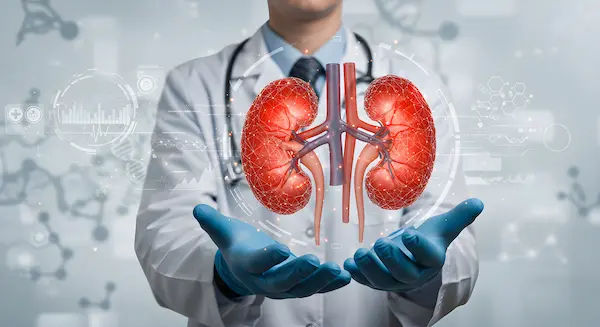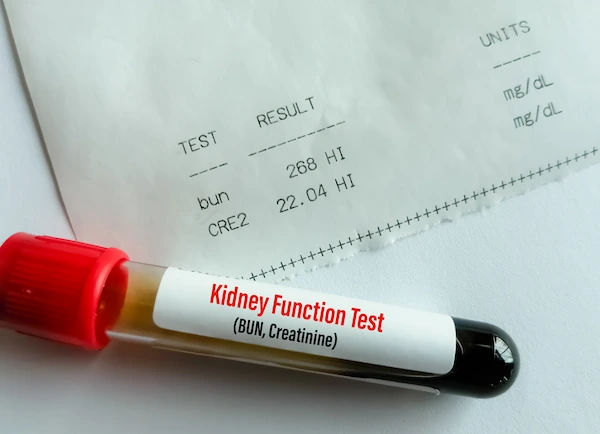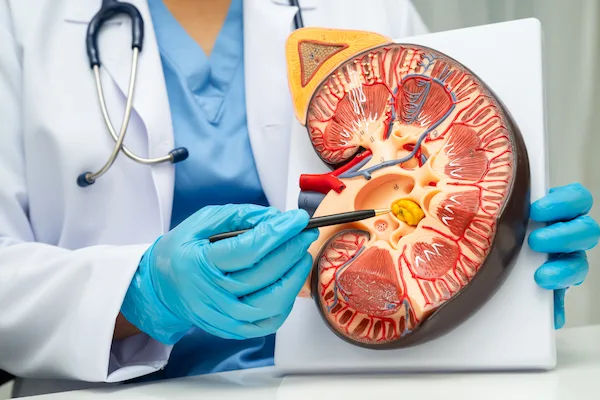Understanding How a CT Scan Works
Explore how a CT scan works, what it detects, and how this imaging technique helps diagnose various medical conditions with detailed cross-sectional body images.

Written by Dr. Mohammed Kamran
Reviewed by Dr. Rohinipriyanka Pondugula MBBS
Last updated on 7th Aug, 2025
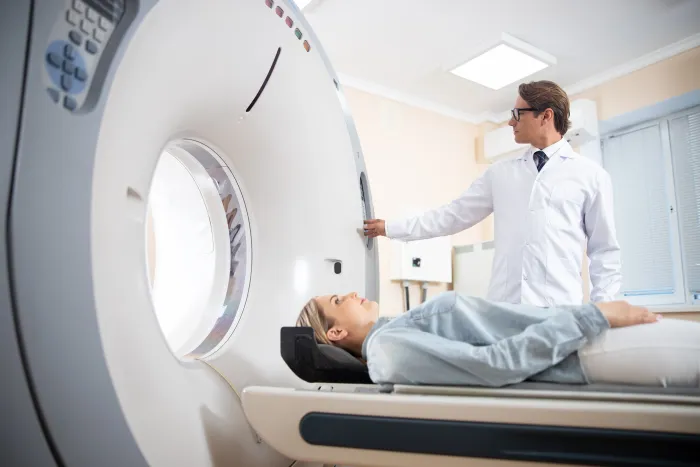
If your doctor has recommended a CT scan, you might be wondering what it is, how it works, and why it’s needed. Don’t worry—this guide will help you understand everything in simple terms.
What Is a CT Scan?
A CT (Computed Tomography) scan is a special type of imaging test that uses X-rays and computer technology to create detailed pictures of the inside of your body. Unlike a regular X-ray, which takes a single image, a CT scan takes multiple images from different angles and combines them to give a more complete view.
Think of it like slicing a loaf of bread—each "slice" shows a different section of your body, helping doctors see bones, organs, blood vessels, and tissues in great detail.
Why Is a CT Scan Done?
Doctors recommend CT scans for many reasons, including:
- Diagnosing conditions: Such as tumours, infections, or fractures.
- Monitoring diseases: Like cancer or heart disease.
- Guiding procedures: Such as biopsies or surgeries.
- Checking for internal injuries: After accidents or trauma.
How Does a CT Scan Work?
Here’s a step-by-step breakdown of what happens during a CT scan:
1. Preparation
- You may be asked to fast for a few hours if contrast dye is used.
- Wear comfortable clothing and remove metal objects (jewellery, belts).
- nform your doctor if you’re pregnant or have allergies (especially to contrast dye).
2. The Scanning Process
- You’ll lie on a motorised table that slides into a large, doughnut-shaped machine.
- The machine rotates around you, taking X-ray images from different angles.
- You may hear soft buzzing or clicking sounds—this is normal.
- The scan is painless and usually takes 5–30 minutes, depending on the area being scanned.
Consult Top Specialists
3. Use of Contrast Dye (If Needed)
- Some scans require a contrast dye (given as a drink, injection, or enema) to highlight certain areas.
- You might feel a warm sensation or a metallic taste—this is temporary.
4. After the Scan
- You can usually resume normal activities immediately.
- If contrast dye was used, drink plenty of water to help flush it out.
- Your doctor will discuss the results with you in a follow-up appointment.
Is a CT Scan Safe?
CT scans use low-dose radiation, which is generally safe. However, doctors avoid unnecessary scans, especially in pregnant women and children. The benefits (like early disease detection) usually outweigh the risks.
How to Prepare for a CT Scan?
To ensure the best results:
- Follow your doctor’s instructions (fasting, medication adjustments).
- Stay still during the scan to avoid blurry images.
- Inform the technician if you feel anxious—they can help you relax.
When to Consult a Doctor?
If you experience:
- Severe allergic reactions (rare but possible with contrast dye).
- Unusual symptoms after the scan.
Book a consultation with your doctor or schedule a CT scan through Apollo 24|7 for a hassle-free experience.
Conclusion
A CT scan is a quick, painless, and highly effective way to diagnose and monitor health conditions. If your doctor recommends one, there’s no need to worry—just follow the preparation steps, stay calm, and trust that this test will help in your treatment journey.
Consult Top Specialists
Consult Top Specialists

Dr. Shesham Srinidhi
General Practitioner
5 Years • MD(physician)
Hyderabad
Apollo 24|7 Clinic, Hyderabad
(150+ Patients)
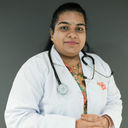
Dr. Siri Nallapu
General Practitioner
5 Years • MBBS
Hyderabad
Apollo 24|7 Clinic, Hyderabad

Dr Divya Lekha Gunta
General Practitioner
10 Years • MBBS, MD (Pathology)
Visakhapatnam
Apollo 24|7 Clinic - Andhra Pradesh, Visakhapatnam
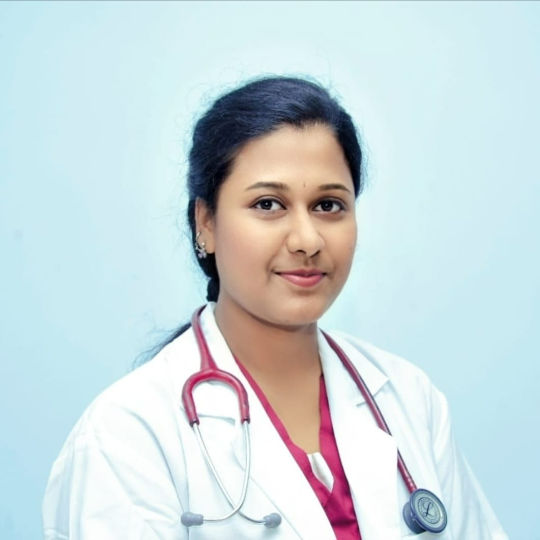
Dr. J T Hema Pratima
General Practitioner
9 Years • MBBS, Fellowship in Diabetes Mellitus
Chennai
Apollo 24|7 Clinic - Tamilnadu, Chennai
(350+ Patients)
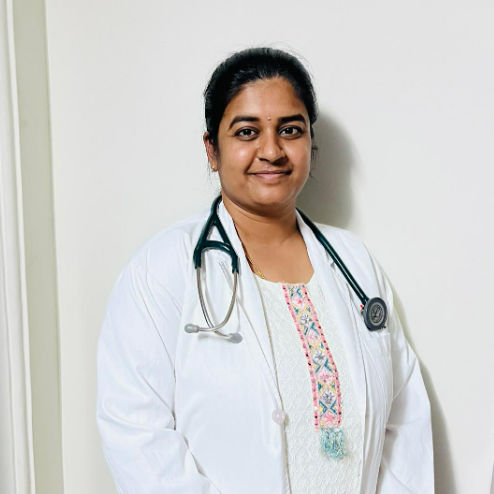
Dr. Rohinipriyanka Reddy
General Practitioner
9 Years • MBBS
Hyderabad
Apollo 24|7 Clinic, Hyderabad
Consult Top Specialists

Dr. Shesham Srinidhi
General Practitioner
5 Years • MD(physician)
Hyderabad
Apollo 24|7 Clinic, Hyderabad
(150+ Patients)

Dr. Siri Nallapu
General Practitioner
5 Years • MBBS
Hyderabad
Apollo 24|7 Clinic, Hyderabad

Dr Divya Lekha Gunta
General Practitioner
10 Years • MBBS, MD (Pathology)
Visakhapatnam
Apollo 24|7 Clinic - Andhra Pradesh, Visakhapatnam

Dr. J T Hema Pratima
General Practitioner
9 Years • MBBS, Fellowship in Diabetes Mellitus
Chennai
Apollo 24|7 Clinic - Tamilnadu, Chennai
(350+ Patients)

Dr. Rohinipriyanka Reddy
General Practitioner
9 Years • MBBS
Hyderabad
Apollo 24|7 Clinic, Hyderabad
Consult Top Specialists

Dr. Shesham Srinidhi
General Practitioner
5 Years • MD(physician)
Hyderabad
Apollo 24|7 Clinic, Hyderabad
(150+ Patients)

Dr. Siri Nallapu
General Practitioner
5 Years • MBBS
Hyderabad
Apollo 24|7 Clinic, Hyderabad

Dr Divya Lekha Gunta
General Practitioner
10 Years • MBBS, MD (Pathology)
Visakhapatnam
Apollo 24|7 Clinic - Andhra Pradesh, Visakhapatnam

Dr. J T Hema Pratima
General Practitioner
9 Years • MBBS, Fellowship in Diabetes Mellitus
Chennai
Apollo 24|7 Clinic - Tamilnadu, Chennai
(350+ Patients)

Dr. Rohinipriyanka Reddy
General Practitioner
9 Years • MBBS
Hyderabad
Apollo 24|7 Clinic, Hyderabad

